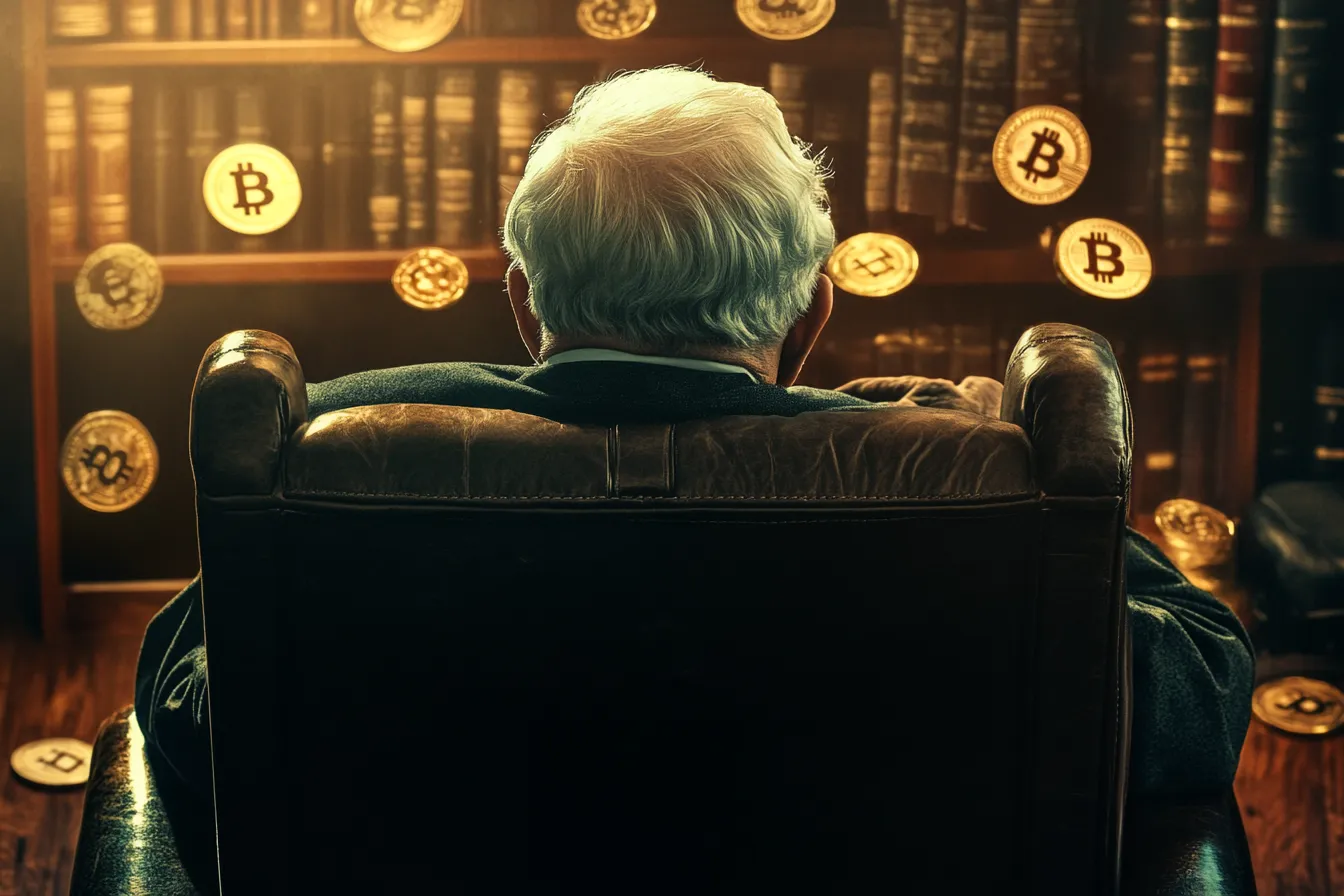
The investment world is abuzz with the news that legendary investor Warren Buffett will be stepping down as CEO of Berkshire Hathaway at the end of the year after 60 years at the helm, transitioning the role to his long-time lieutenant, Greg Abel.
For the cryptocurrency market, Buffett's impending departure carries a particular weight, primarily due to his famously staunch and often colorful criticism of digital assets, especially Bitcoin. Over the years, Buffett has consistently voiced his skepticism, famously labeling Bitcoin " rat poison squared " and a "gambling token" with "no unique value."
His bearish stance, reiterated as recently as last year even amidst Bitcoin's price surges, has often been cited by traditional finance circles as a cautionary voice against the nascent asset class. Buffett's aversion stemmed from his core investment philosophy of valuing tangible assets and businesses with intrinsic value and predictable earnings – qualities he seemingly doesn't see in cryptocurrencies.
However, Buffett's views on the underlying technology, blockchain, have been more nuanced. He acknowledged its importance, stating in 2019 that "blockchain was important," even while dismissing Bitcoin as a " delusion ." This aligns with the trajectory seen by other financial giants like JP Morgan and BlackRock, who initially expressed similar reservations about Bitcoin but have since ventured into the crypto space with various initiatives, recognizing the potential of the broader digital asset ecosystem. BlackRock CEO Larry Fink, notably, has even become a Bitcoin advocate.
Interestingly, Buffett himself, despite his tech-skeptic reputation (famously using a flip phone until relatively recently), eventually recognized the value proposition of certain technology companies, with Apple becoming Berkshire Hathaway's largest holding. This demonstrates a willingness to adapt and acknowledge evolving market dynamics, albeit with a significant time lag.
The crypto community has largely remained unfazed by Buffett's criticisms, often viewing them as a reflection of a traditional mindset struggling to grasp the disruptive potential of decentralized digital currencies. The continued growth and adoption of cryptocurrencies, along with the increasing institutional interest, suggest a market that is charting its own course, independent of Buffett's long-held skepticism.
While Buffett's pronouncements have undoubtedly influenced some investors, the fundamental drivers behind cryptocurrency adoption – including decentralization, potential as a hedge against inflation, corporate adoption on balance sheets, and the innovative use cases of blockchain technology – continue to fuel its growth.
As Abel prepares to take the helm at Berkshire Hathaway, it remains to be seen whether the company's stance on cryptocurrencies will evolve. Abel's views on digital assets are less publicly known, leaving room for speculation about a potential shift in perspective within the investment giant.
Regardless of Berkshire Hathaway's future approach, Buffett's retirement from the CEO role marks the end of an era. His enduring influence on the investment world is undeniable, even if his views on crypto ultimately placed him on the sidelines of a rapidly transforming financial landscape.




